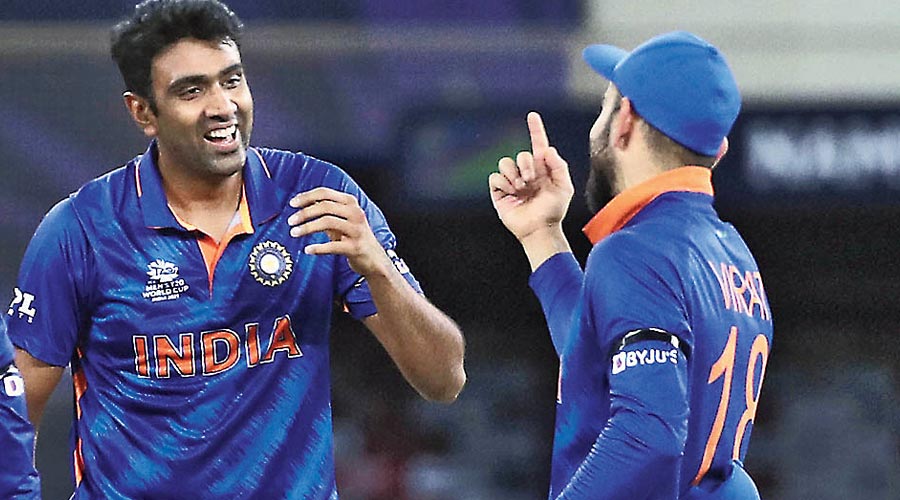A common refrain among India’s support staff and players in their post- mortem of the T20 World Cup exit has been the fatigue factor, both mental and physical.
While staying in the bio-bubble had its pitfalls, barely a week-long gap separated the IPL and their opener against Pakistan in the showpiece event which has largely been blamed for the failure.
“These guys are physically and mentally drained. Six months in a bubble and then what (they) would’ve ideally liked was a bigger gap between the IPL and the World Cup,” outgoing head coach Ravi Shastri reasoned. “It’s when the big games come... when the pressure hits you, you’re not as switched on as you should be… that X-factor was missing.”
Not surprisingly, the BCCI decided to rest the top stars, including Virat Kohli, Mohammed Shami, Jasprit Bumrah and Ravindra Jadeja, for the T20I series against New Zealand. New head coach Rahul Dravid has also strongly advocated for workload management of the players.
India’s problem is not in the amount of international match-days but the number of multi-format cricketers that the team possesses. India have had 78 match-days since last year when the game resumed following the pandemic outbreak. In comparison, other nations have had more — England 115, West Indies 89 and Pakistan 86. Besides, there were two draining seasons of IPL which also involved staying in the bio-bubble.
While England, West Indies and Australia have specific teams for different formats with few common participants, India’s multi-format players had to bear the brunt of the workload.
“Bubble fatigue was definitely one of the reasons for the loss. The amount of cricket being played is not funny,” former national selection committee chairman MSK Prasad told The Telegraph. “IPL was supposed to be the ideal preparation for the World Cup, but unfortunately, it didn’t turn out that way. Had there been a 15-day gap between the two, the players would have been more fresh.”
Prasad, who was succeeded by incumbent Chetan Sharma, doesn’t agree wholly with the fatigue theory. “This wouldn’t have arisen had India won against Pakistan or New Zealand. It was basically two bad days of cricket. There was no sign of fatigue during the practice games or their next three matches after the two losses,” he said.
The IPL was originally supposed to end in May and Team India had no major commitments in October before the World Cup. An outbreak of Covid-19 in the bio-bubble in early May upset all plans.
“You can’t blame the BCCI. Going forward the ideal thing will be to have a rotation policy for different formats where everyone, including the seniors, gets adequate rest and remains fresh. That’s the way to go,” Prasad said.
English stars Jos Buttler and Ben Stokes decided to skip the IPL because of varying reasons but the Indians haven’t dared to take such bold steps. Prasad feels a sense of insecurity often leads a cricketer to opt out of the rotation policy.
“A proper system needs to be created. If a senior wants/needs a break, priority should be given for his welfare. Whenever he decides to be back, he should be forthwith included in the side. My experience suggests that often players decide against taking a break because of a sense of insecurity of not getting their place back,” he said.











